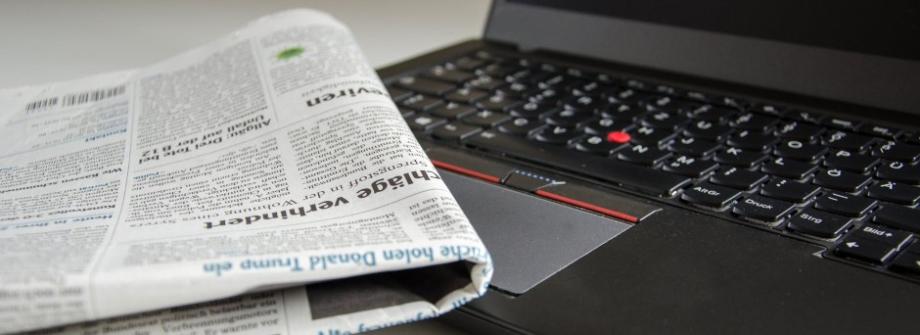
Andrea Acerbis* and Annalisa Ruggeri**, comment on the publication entitled “Ide-cel or Standard Regimens in Relapsed and Refractory Multiple Myeloma” published in The New England Journal of Medecine.
Ide-cel or Standard Regimens in Relapsed and Refractory Multiple Myeloma
Paula Rodriguez-Otero et al.
The New England Journal of Medicine: https://www.nejm.org/doi/10.1056/NEJMoa2213614
Patients affected by triple-class-exposed relapsed and refractory multiple myeloma (RRMM) have limited treatment options; the introduction of immunomodulatory agents, proteasome inhibitors and anti-CD38 monoclonal antibodies in combinations, although really effective controlling the disease, has meant that relapsed disease responds suboptimally to standard therapies, with poor survival outcomes.2 In phase 2 KarMMa trial, idecabtagene vicleucel (ide-cel), a B-cell maturation antigen-directed chimeric antigen receptor (CAR) T-cell therapy, allowed deep and durable responses in triple-class-exposed patients affected by RRMM, leading to the approval of the product for the fourth-line treatment in the European Union.3
In this paper, the authors report the results of a phase 3 clinical trial (KarMMa-3, NCT03651128) involving adults affected by RRMM who had received two to four regimens previously (including immunomodulatory agents, proteasome inhibitors, and anti CD38) and who had disease refractory to the last regimen: 254 patients received ide-cel and 132 patients one of five standard regimens (chosen before randomization on the basis of the patient’s most recent treatment regimen and investigator discretion).
With a median follow-up of 18.6 months, progression-free survival (primary endpoint) in the experimental arm was significantly longer (median, 13.3 months vs. 4.4 months), but also key secondary end points (ORR and OS) were met, proving a striking efficacy of ide-cel therapy in a very hard-to-treat disease. Showing a rare occurrence of adverse events of grade 3 or higher (in particular, cytokine release syndrome and neurotoxic events), this trial also highly supports the safety and tolerability of ide-cel in patients with MM.
The importance of this paper relies on the proof-of-concept that also in RRMM a single infusion of an active immunotherapy results in significantly longer PFS towards than was seen with standard continuous treatments, providing benefits to patients affected by a difficult-to-treat disease, also in the higher risk subgroups (presence of high-risk cytogenetic abnormalities, extramedullary disease, high tumor burden, triple-class refractory status).
Results of ide-cel in KarMMa-3 trial suggest this product as a new standard of care. Regardless, this trial has some limitations, including the treatment heterogeneity in the standard-regimen group and the inability to explain mechanisms of ide-cel resistance. Besides, other BCMA-directed CAR-T products, such as ciltacabtagene autoleucel, have features of higher avidity of binding to target cells, enhanced activity, and lowered immunogenicity and seem to lead to a better depth of remission compared to ide-cel.4 Additional real-world data will help provide further insights into the comparative efficacy and safety profiles of these treatments.
There are still several challenges to be addressed and this study opens new questions in the field. How should we treat relapse after anti-BCMA CAR-T cell therapy? How to manage high manufacturing costs of autologous CAR-T cell products, that strongly limit their accessibility? Should such therapies be tested also during first-line of therapies, in particular in higher risk MM? Thus, further improvement is required. The authors will be presenting the paper during the plenary session during the 49th Annual Meeting of the EBMT. More info here.
References
1. Rodriguez-Otero P et al. N Engl J Med 2023; 388:1002-1014. DOI: 10.1056/NEJMoa221361
2.Mateos M-V, Weisel K, De Stefano V, et al. LocoMMotion: a prospective, non interventional, multinational study of real life current standards of care in patients with relapsed and/or refractory multiple myeloma. Leukemia 2022;36:1371-6.
3. Munshi NC, Anderson LD Jr, Shah N, et al. Idecabtagene vicleucel in relapsed and refractory multiple myeloma. N Engl J Med 2021;384:705-16.
4. Berdeja JG, Madduri D, Usmani SZ, et al. Ciltacabtagene autoleucel, a B-cell maturation antigen-directed chimeric antigen receptor T-cell therapy in patients with relapsed or refractory multiple myeloma (CARTITUDE-1): a phase 1b/2 open-label study. Lancet 2021;398(10297):314–324.
* Andrea Acerbis, MD
Hematology-Oncology Fellow
Università Vita e Salute San Raffaele
Milan, Italy
** Annalisa Ruggeri, MD, PhD
Hematology and BMT Unit
IRCCS San Raffaele Hospital
Milan, Italy